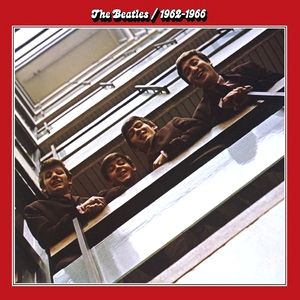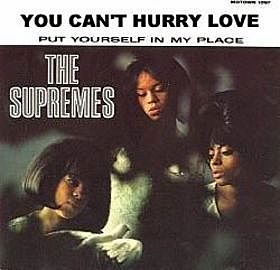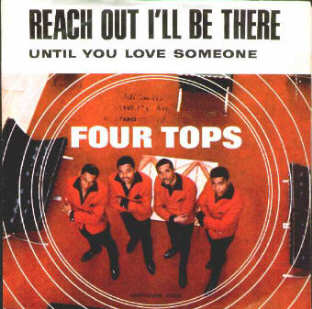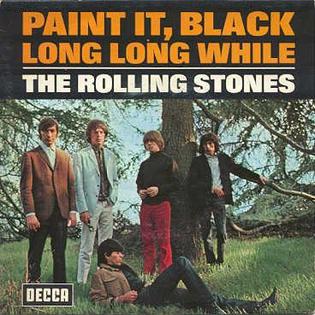Related Research Articles

The 1966 FIFA World Cup was the eighth FIFA World Cup, a quadrennial football tournament for men's senior national teams. It was played in England from 11 July to 30 July 1966. England defeated West Germany 4–2 in the final to win their first and so far only ever title; the match had finished at 2–

Franz Anton Beckenbauer is a German former professional footballer and manager. In his playing career he was nicknamed Der Kaiser because of his elegant style, dominance and leadership on the field, and also as his first name "Franz" is reminiscent of the Austrian emperors. He is widely regarded to be one of the greatest players in the history of the sport. A versatile player who started out as a midfielder, Beckenbauer made his name as a central defender. He is often credited as having invented the role of the modern sweeper (libero).

1962–1966, also known as the Red Album, is a compilation album of hit songs by the English rock band the Beatles, spanning the years indicated in the title. Released with its counterpart 1967–1970 in 1973, the double LP peaked at number 3 in the United Kingdom. In the United States, it topped the Cash Box albums chart and peaked at number 3 on the Billboard Top LPs & Tape chart while 1967–1970 reached the top spot. The album was re-released in September 1993 on compact disc, charting at number 3 in the UK.

"You Can't Hurry Love" is a 1966 song originally recorded by The Supremes on the Motown label.

"You Keep Me Hangin' On" is a song written and composed by Holland–Dozier–Holland. It was first recorded in 1966 by American girl group the Supremes, reaching number one on the Billboard Hot 100. American rock band Vanilla Fudge released a cover version in June of the following year, which reached number six on the Billboard Hot 100. English singer Kim Wilde covered "You Keep Me Hangin' On" in 1986, reaching number one on the Billboard Hot 100 in June 1987. In the first 32 years of the Billboard Hot 100 rock era, "You Keep Me Hangin' On" became one of six songs to reach number one by two different musical acts. In 1996, American country singer Reba McEntire's version reached number two on the US Billboard Hot Dance Club Play chart. The BBC ranked the Supremes' original song at number 78 on The Top 100 Digital Motown Chart, which ranks Motown releases by their all-time UK downloads and streams.

"Reach Out I'll Be There" is a song recorded by the Four Tops from their fourth studio album Reach Out (1967). Written and produced by Motown's main production team, Holland–Dozier–Holland, the song is one of the best known Motown tunes of the 1960s and is today considered the Four Tops' signature song.

"Hey Joe" is an American song from the 1960s that has become a rock standard and has been performed in many musical styles by hundreds of different artists. The lyrics tell of a man who is on the run and planning to head to Mexico after shooting his unfaithful wife. In 1962, Billy Roberts registered "Hey Joe" for copyright in the United States.

"Kung Fu Fighting" is a disco song by Jamaican vocalist Carl Douglas, written by Douglas and produced by British-Indian musician Biddu. It was released as a single in 1974 on the cusp of a chopsocky film craze and rose to the top of the British, Australian, Canadian, and American charts, in addition to reaching the top of the Soul Singles chart. It received a Gold certification from the RIAA in 1974 and popularized disco music. It eventually went on to sell eleven million records worldwide, making it one of the best-selling singles of all time. The song uses the quintessential Oriental riff, a short musical phrase that is used to signify Chinese culture.

"Paint It Black" is a song recorded in 1966 by the English rock band the Rolling Stones. A product of Mick Jagger and Keith Richards' songwriting partnership, it is an uptempo song with Indian, Middle Eastern and Eastern European influences and features lyrics about grief and loss. London Records released the song as a single on 7 May 1966 in the United States; Decca Records released it on 13 May in the United Kingdom. London Records included it as the opening track on the American version of the band's 1966 studio album Aftermath.

The 1966 Tour de France was the 53rd edition of the Tour de France, one of cycling's Grand Tours. It took place between 21 June and 14 July, with 22 stages covering a distance of 4,329 km (2,690 mi).

"When a Man Loves a Woman" is a song written by Calvin Lewis and Andrew Wright and first recorded by Percy Sledge in 1966 at Norala Sound Studio in Sheffield, Alabama. It made number one on both the Billboard Hot 100 and R&B singles charts. Country singer John Wesley Ryles had a minor hit with his version of the song in 1976 while Singer and actress Bette Midler recorded the song 14 years later and had a Top 40 hit with her version in 1980. In 1991, Michael Bolton recorded the song and his version peaked at number one on both the Billboard Hot 100 chart and the Billboard Adult Contemporary Singles chart.

"Do Wah Diddy Diddy" is a song written by Jeff Barry and Ellie Greenwich and originally recorded in 1963, as "Do-Wah-Diddy", by the American vocal group The Exciters. Cash Box described the Exciters' version as "a sparkling rocker that bubbles over with coin-catching enthusiasm" and said that the "great lead job is backed by a fabulous instrumental arrangement." It was made internationally famous by the British band Manfred Mann.

The discography of American pop rock duo Sonny & Cher consists of five studio albums, eight compilation albums, one soundtrack album, two live albums and twenty-one singles. Sonny and Cher had released three albums and one single which achieved Gold status in the United States: Look At Us, Sonny & Cher Live, All I Ever Need Is You and I Got You babe. In the decade they spent together, Sonny and Cher sold over 40 million records worldwide.

"Black Is Black" is a song by the Spanish rock band Los Bravos, released in 1966 as the group's debut single for Decca Records. Produced by Ivor Raymonde, it reached number two in the UK, number four in the US, and number one in Canada. With the recording's success, Los Bravos became the first Spanish rock band to have an international hit single. A dance remix was released as a single in 1986.
Claude Herbulot was a French entomologist. He was born in Charleville-Mézières and died in Paris. He was a lepidopterist and specialised in moths in the family Geometridae. His collection is housed at the Zoologische Staatssammlung München.
References
- ↑ Archives on "InfoDisc" site Archived 2010-01-07 at the Wayback Machine